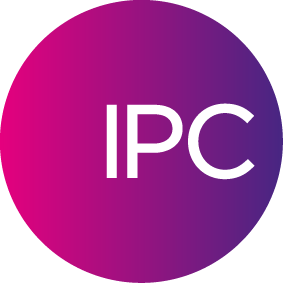By Debbie Molinaro, Technical Publications Group Leader, IPC
In mid-September, I attended the Lesbians Who Tech + Allies New York Leadership Summit for mid-level and executive non-binary and LGBTQ+ women and our allies. Whew! That’s a long title and I’ll unpack it in a minute but first I want to say that I’m immensely grateful to IPC not only for giving me the opportunity to attend but the extraordinary encouragement from places I hadn’t expected. Thank you.
So, what was this summit of Lesbians Who Tech + Allies? In LWT’s own words:
“This event is dedicated to supporting and amplifying queer techies + allies and will specifically offer specialized tech and career tracks providing the inspiration, education, and connections needed to continue being successful in our jobs. This is not your typical conference. The Lesbians Who Tech + Allies Summit is queer, inclusive, and badass. It will bring together their most accomplished leaders for an intimate conference focused on technology trends and career growth. This curated experience for mid-level and executive members will be unlike any other tech conference in existence.”
You might be wondering: why have LWT Summits? Aren’t there enough technology conferences? Founder Leanne Pittsford said she started LWT because she went to tech events and found them to be predominantly populated by men. She went to LGBTQ+ tech events and they too were primarily attended by men. When she went to women in tech events, she noticed that lesbian and queer women were missing from those. She wondered if there were any lesbians in tech! (Fast forward: LWT has 40,000 members today.)
Like the Ellevate Summits, the LWT Summits are diverse and inclusive by design. They ensure that speakers are 50% women of color and 15% trans and gender non-conforming people. As a result, there’s a richness of voices and you walk away with an awareness of just how expansive our resources are.
The diversity of session topics ranged from sociological to technical, to mash-ups of socio-politico-technical. Here’s a small sample of session titles to give you a taste:
- Demystify algorithmic trading
- The Intersection of Tech & Human Rights
- Migrating to the cloud: pitfalls and possibilities
- Black Girls code – Uplifting the Next generation of women in Tech
- Tackling Technical Debt
- The future of entertainment & technology: Kara Swisher interviewing Jane Lynch
- Raising venture-capital funding as a minority
- Complete history of branding in 12 minutes
It was incredibly validating witnessing just how smart and techy the presenters were. I know I should know better, but still. Ask me about algorithmic trading!
Of note, one attendee mentioned that she checks a company’s website for a D&I policy and if they don’t have one, she doesn’t pursue. In case you’re wondering, yes we do! Cliché as it sounds, there’s strength in diversity. It used to be that when companies sought to diversify their workforce, they looked for people in under-represented groups who’d be a good fit within their existing structures. Gradually, companies are learning to open and expand their cultures in order to make space for people to bring their whole selves to the organizations. Data shows that expanding the culture increases ideas and problem solving approaches and makes good business sense. At IPC we are committed to living our Core 4 values; Be the Best You to Create the Best Us, Work Smarter, Inspire…Aim Higher and Embrace the Customer and the Change They Create. These values support our open culture at IPC.
Kimberly Bryant, founder of @BlackGirlsCode, said, “If you’re not looking at intersectionality, you’re not getting it right. It may be time to move beyond diversity.” If you’re new to the term intersectionality, this Wikipedia description is a fair place to start: “The various forms of social stratification, such as class, race, sexual orientation, age, disability and gender, do not exist separately from each other but are interwoven together.”
It was a nice surprise to find some of our customers (and competitor’s customers) and vendors sponsoring the summit and recruiting there. Among others, there were Goldman Sachs, JP Morgan Chase, Morgan Stanley, and Red Hat. Here’s a little known fact: Lloyd Blankfein of Goldman Sachs was the first American CEO who openly supported marriage equality.
The two main things I brought back from the event are:
- to help our D&I Program to take an intersectional lens to our thinking, perhaps beginning with collaborative efforts between our D&I groups.
- to encourage IPC to both sponsor and recruit at next year’s summit. The women here were wicked smart and IPC needs to be in a position to take advantage of the talent.
© 2018 IPC Systems, Inc. All Rights Reserved. The contents of this publication are intended for general information purposes only and should not be construed as legal or regulatory advice.

